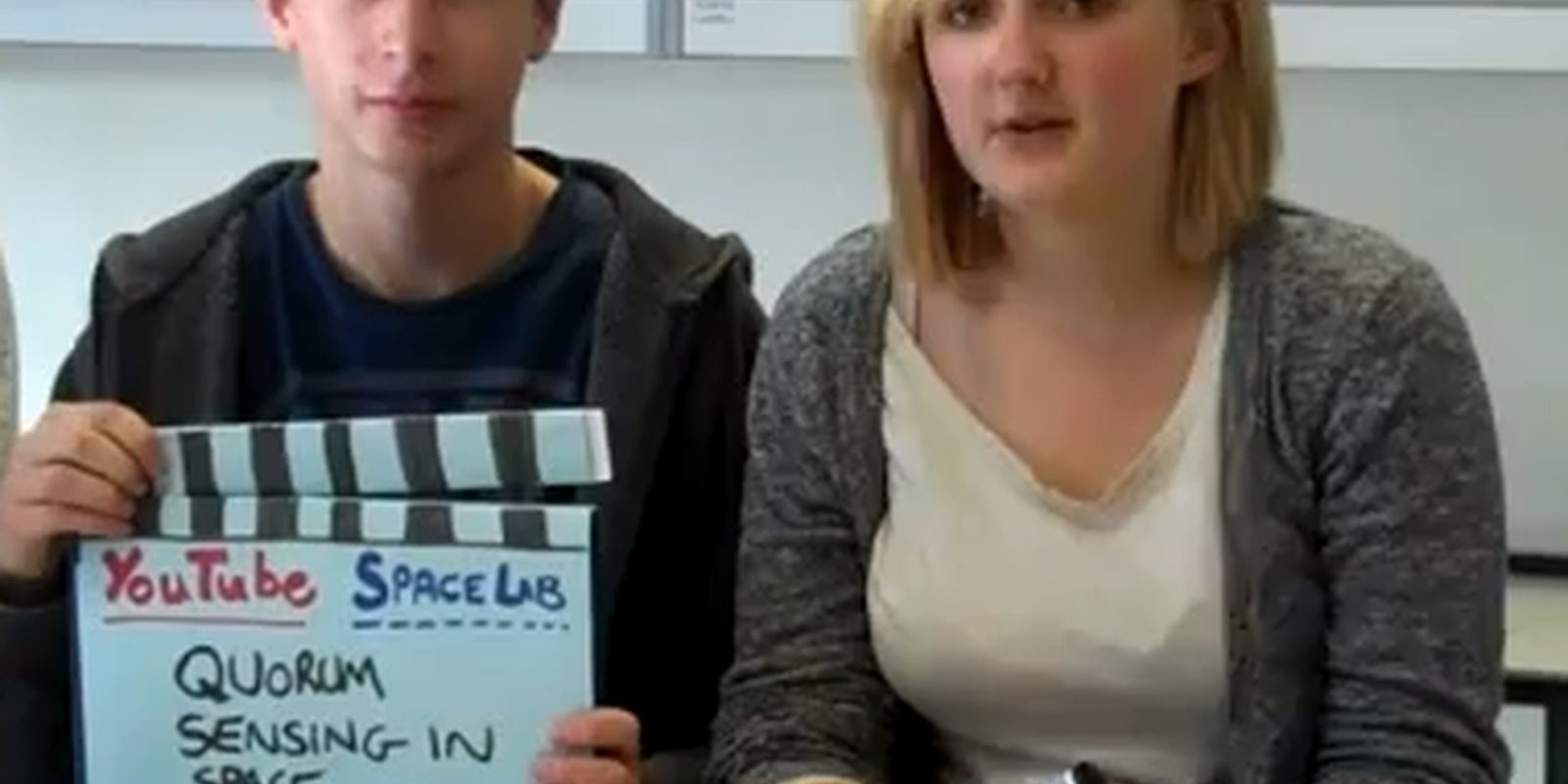Would the world be a better place if teenagers spent Black Friday coming up with science experiments instead of going out shopping for bargains?For those with rockets instead of racks of clothing on the brain, Scientific American has launched the YouTube Space Lab channel, along with Google, Lenovo, and NASA, and announced a contest to help young scientists between the ages of 14 and 18 see their theories tested in zero gravity aboard the International Space Station.
To enter, participants have to come up with a microgravity experiment and submit a video about it by December 14. A sample entry proposes testing whether bacterial bioluminescence depends on the presence of gravity.
Two of the best ideas will get prepped and shipped to space for actual testing by astronauts aboard the International Space Station, an event which will be streamed live next summer on YouTube. The winners will also get to take a flight on NASA’s “Vomit Comet,” a subspace flight which simulates zero gravity, and decide between watching the rocket with their experiment blast off in Japan or waiting until they turn 18 and taking cosmonaut training in Russia.
The even cooler part: acclaimed scientist Stephen Hawking, along with 39 other judges, will be the ones to pick the best idea.
Two contest winners will be announced by March 13, and six regional winners will be picked by the end of January.
The video announcing the contest has already drawn 314,000 views—as well as some out-of-this-world responses.
“My idea is to send Justin Bieber to live on the moon,” wrote arthur121xD.
Alas, Arthur, while Bieber is a YouTube phenomenon not yet fully understood by humanity, your idea must have a hypothesis, a method, and the expected result—in line with the scientific method.
While entrants are expected to be rigorous, Scientific American hasn’t exactly stuck to its own rules. While the Space Lab channel says the deadline is December 7, with “no extensions, no exceptions,” in a comment, the Space Lab account explained that the deadline is now December 14.
